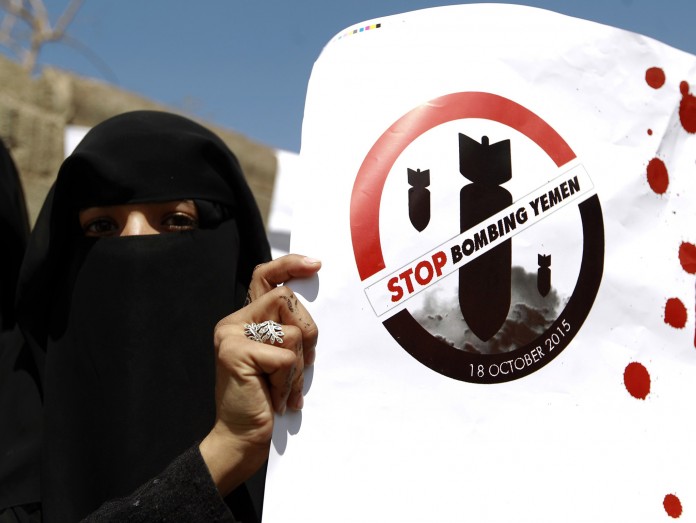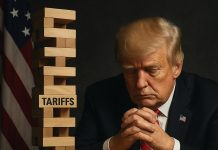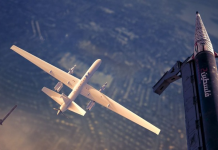
By Richard Walker
Thousands of Latin American mercenaries flooding into the battle-ravaged country of Yemen have been trained by United States Special Forces and are being paid by American companies with money from oil-rich Arab states, including Saudi Arabia and the United Arab Emirates (UAE).
Yemen is a tiny country on the southern end of the Arabian Peninsula. It is now in the midst of a bloody war, with Saudi Arabia bombing Yemen.
The UAE, while a small nation, has one of the world’s biggest military budgets. Its generals have been educated in the West and have close ties to London, Washington, and Tel Aviv. It has played a significant, though secretive, role in the West’s military operations in Afghanistan, Syria, and Libya. Sources this writer spoke to suggested that, along with the Saudis, UAE Special Forces have been part of covert operations targeted at Iran and the Assad government in Syria.
In 2012, following a rebellion perceived to have been part of the so-called Arab Spring, the revolutionist of Yemen overthrew their president, Ali Abdullah Saleh, a Saudi puppet who had run the country as a dictatorship for 33 years.
The Saudis lied to the West, claiming that the Houthis were allies of Iran. It was a convenient cover story to win the support of Washington, London, and Tel Aviv for a war in Yemen. Since then, Saudi and UAE warplanes have bombed the country, killing at least 8,000 innocent people and wounding 18,000. According to the United Nations, the Saudis and their Arab allies have committed war crimes by targeting schools, homes, and hospitals.
For years, the Saudis and the UAE have channeled billions of dollars to U.S. and British “defense” companies to take care of their mercenary needs in proxy wars across the region. But their Yemen campaign has led to them hiring a small mercenary army to fight a ground war while they bomb from the air and sea.
The mercenaries are from outfits like Academi (formerly Blackwater), R2 (Reflex Responses), Dyncorps, and a secretive company called Vinell Corporation that was bought by Northrup Grumman. The Saudis, because Yemen is next door, have been running the war. The UAE has been doing most of the hiring, with the bill now in the tens of billions of dollars. It is being shouldered mainly by Saudi Arabia and the UAE, though other Arab states like Jordan are involved, too, militarily and financially.
Equally noticeable is that a large percentage of the mercenaries are from countries where the U.S. spent tens of billions of dollars on military training programs aimed at the so-called war on drugs or leftist guerrillas. Those countries include Mexico, Guatemala, Chile, El Salvador, and Colombia. Some estimates suggest there may be tens of thousands of former soldiers from those nations registered as mercenaries. A large percentage of them would have been trained by U.S. Special Forces.
In tandem with the ridiculous sums paid to soldiers-for-hire outfits—or contractors, as the mainstream media likes to call them—the U.S. government and its defense companies have been reaping massive profits from arms sales to Saudi Arabia and the UAE. The latter has cleverly kept a low media profile in Washington while courting favor with the White House. For example, the UAE and the Pentagon have refused to publicly discuss the UAE’s handover of its Al Dhafra base to the U.S. military and the special permission granted to the U.S. Navy for the use of Dubai’s Jebel Ali seaport.
According to London’s Independent newspaper, the Saudi war in Yemen, “supported in practice by the U.S. and Britain,” has been a disaster because it has provided al Qaeda in the Arabian peninsula with the ability to consolidate and increase its territory just as Western intervention in Iraq, Syria, and Libya enabled the rise and expansion of the Islamic State—ISIS.
Just as important is the fact that Washington and London, by providing military expertise for the vicious Saudi targeting of Yemen civilians, and assisting with the hiring of mercenaries, are adding more fuel to another potentially dangerous Middle East conflict. The West’s role in it exposes an increasing tendency of the Obama White House to engage in proxy wars across the region.




















